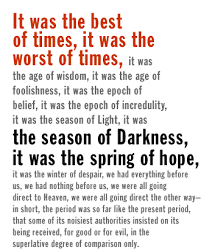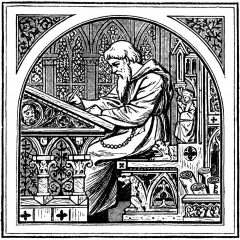
The opening lines of A Tale of Two Cities describing the upheaval of the French revolution, is in many ways a fitting place with which to try and reflect on the state of our nation (and a world) almost a 1/5th of the way into the twenty-first century. Three months on from when the literary world commemorated the author, journalist and passionate social reformer Charles Dickens on the 150th anniversary of his death, and with the real world still in the grip of a global pandemic, I thought this would also be a good time to reflect the role faith continues to play in determining whether we are really in the best of times or the worst of times.
New (Old) Problems
Many of the problems from Dicken’s time are still with us; the gap between rich and poor is as wide as ever; educational attainment is still predicated on attending the right kind of school in particular for those seeking entry into what we still call the professions, in poorer working class areas lack of suitable social housing, food poverty exacerbated by welfare changes and zero hours employment along with the consequences of poor diet and unhealthy lifestyles for many of us, all continue to take their toll with increases in obesity and type 2 diabetes most noticeable. The gin houses of the Dickens era have been replaced by the supermarkets, bargain booze outlets and fast food joints of the modern world.
The cap on housing benefits together with the bedroom tax has resulted in many families being forced to move to unfamiliar areas and sometimes into sub-standard properties, where they are at the mercy of rogue landlords despite recent legislation banning revenge evictions if anyone dares to complain. Unlike Dickens’ father, we may no longer imprison people for getting into debt, but finding oneself in hock to a loan shark – legal or otherwise – is itself a form of servitude along with those who find themselves struggling to pay off debts to banks and credit card companies. This is but a brief snapshot of the main problems today, where race as well as social class is also barrier to achieving the potential we are all born with and yet, so few seem to realise in their lifetimes.
Family the basic building block
If we believe as surely we should, that the basic building block of society is the family, then all other elements should flow from that. Government policies should ensure that the family remains at the fabric of the nation. In the years immediately following WW2, both main parties were in general agreement about governance and governed with the pragmatic considerations of office. Yet over the past forty years that post-war consensus has been turned on its head, with all the main political parties now vying to monopolise the modernising agenda, in the belief that this is what the public really wants.
Should the state then do everything? Or should it simply create the strategic framework which allows for those policies which enhance this basic building block, family health, education, defence, welfare, energy and food to be provided, but not necessarily by the state? The record over the last four decades of free market principles and public sector-led management has been patchy to say the least. In some areas teachers and police officers have to act as de-facto social workers, with the resulting impact on already overstretched resources. They say charity begins at home: but for many families facing the problems created by unemployment, benefit cuts, lack of meaningful educational and vocational opportunities, high crime, poor housing and diet, it is these same charities – both religious and secular – who are still trying to plug the gaps between society’s expectations and government policies.
Faith Groups on the Frontline
All faith groups will testify that in recent years demand for their services has almost outstripped supply especially during this current pandemic, in particular demand on foodbanks and other short-term relief. People trafficking and modern slavery are also areas which have pricked the public consciousness in recent times yet it is faith groups, particularly the Churches, who increasingly find themselves in the front line trying to both increase local awareness and providing pastoral and material support supplementing that provided by the authorities. Many workplace and industrial Chaplains are familiar with these issues as they also volunteer their services to local relief operations whether it is food distribution, money and debt advice, supporting job seekers or those who are fleeing abusive environments as well as those living with addictions and/or mental illness and homelessness.
Serving the People
Of course there have been many advances which have benefitted the world since Charles Dickens first took up his quill pen and where the churches and other faith groups played prominent roles; such as in education, housing, healthcare and the formation of the first Co-Operative Societies which ensured better quality food became more readily available. Yet despite these gains, our political and economic models and their advocates seem as remote as ever from the people they are supposed to serve. Witness the bitter personal campaigns and mudslinging during the lead up to the EU referendum, the recent General Election and now the polarised views on how Governments are handling the COVID-19 crisis. This is doing little to allay the justified fear among many as to what sort of future they have to look forward to, with the undoubted economic impact which this country will have to endure over the coming months and quite possibly years, Brexit aside.
The fact that many of the social problems so graphically described in Dickens’ novels are still with us today despite the many social and technical advances since 1945 reminds us that in many ways, these are still the best of times and still the worst of times.
